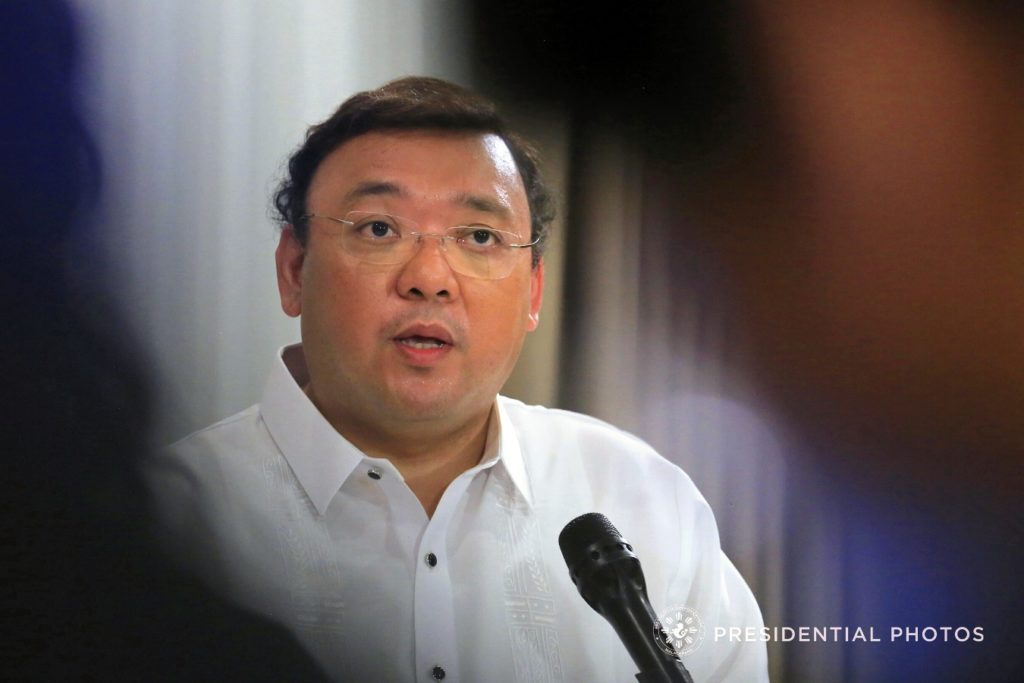
MANILA – With President Rodrigo Duterte’s decision to withdraw the Philippines’ ratification of the Rome Statute treaty, the International Criminal Court (ICC) has lost its strongest ally in Asia, Presidential Spokesman Harry Roque Jr. said on Thursday.
In a Palace briefing, Roque said ICC special prosecutor Fatou Bensouda has violated the principle of complementarity that prompted Duterte to withdraw from ICC.
“Because of the violation committed by the prosecutor, the ICC has lost its strongest ally in Asia continent. So to the ICC, to the Assembly of State Parties, they only have to thank the prosecutor for the end of our dream to achieve universal ratification for the ICC,” Roque said.
Roque said the Philippines is one of the only three ICC members in Southeast Asia. Others are Cambodia and Timor-Leste.
“Now that we are withdrawing, there is no other country that would convince Asian nations to join the ICC. This is the development that the prosecutor should have considered when she decided to embark on preliminary examination,” Roque said.
“My only hope is that this will not lead into an avalanche of countries wanting to get out from the ICC,” Roque said.
Roque admitted he was saddened by the country’s withdrawal from ICC as he was the one who lobbied for Philippines membership into the ICC.
“But I agree with the President that we cannot set aside sovereignty,” he said.
Roque also agreed with Duterte that there is “concerted efforts” to paint the President as ruthless and heartless violator of human rights for allegedly allowing extra-judicial killings.
“With the statement, the President is convinced that there must be some kind of a conspiracy on the part of pressure groups and UN officials to shame him,” Roque said.
He said the ICC’s plan to conduct preliminary examination into the war on drugs has been politicized by the prosecutor through the help of lobby groups.
“It’s the same lobby groups who have successfully lobbied the Office of Prosecutor also to proceed at least with preliminary examination,” Roque said.
Roque said the lobby groups are composed of human rights groups that have a very strong lobby in the UN human rights bodies, including ICC.
He said local political parties including what the so-called OSI (open society institute) composed of members former President Benigno Aquino III’s Liberal Party have been taking advantage of the situation.
Roque said the President will never recognize the ICC jurisdiction on his person because it will violate his right to due process since ICC’s Rome Statute is not enforceable in the Philippines.
He added the law was not published in the official gazette or a newspaper of general publication when the Philippines signed it on Dec. 28, 2000 and ratified by the Senate in August 2011.
He denied ICC prosecutor’s claim that the Philippines’ courts are unable or unwilling to investigate the war on drugs.
“In the Philippines, it is very clear that our courts are functional and nobody is above the law including a president,” Roque said.
Roque said the ICC can still pursue preliminary examination on war on drugs but the prosecutor has do it within one year.
“If she (prosecutor) would not proceed within one year in the preliminary investigation, the case or the preliminary examination that the prosecutor has started will be disregarded,” he explained.
He said even if a case will be filed against President, the ICC cannot order arrest “unless the President will go to ICC and present himself.”
“The arrest of the President depends wholly on cooperation. I don’t think the Philippines will ever surrender himself to the ICC,” Roque said.
Roque has downplayed the possible impact of the President’s decision on the country’s image, adding even big countries like United States, Russia, and China are not ICC members.
He insisted the ICC prosecutor is “to blame if ICC will become part of history.”
Roque clarified the withdrawal from ICC does not need Senate’s approval.
“The reason why the Senate consent is not necessary is that the Constitution does not provide that it’s necessary,” he explained.
He said President Duterte has instructed Executive Secretary Salvador Medialdea to notify UN Secretary-General Antonio Guterres about Duterte’s decision through the Department of Foreign Affairs.